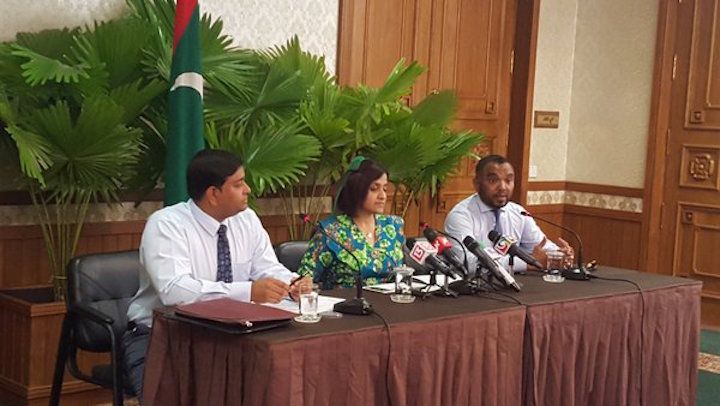India did not raise issue of political prisoners, says foreign minister
Briefing the press this afternoon on Yameen’s official two-day visit to India, Dunya said: “According to my information, the names of any these people did not come up during discussions between the president and India’s prime minister and they did not criticise our affairs either.”

12 Apr 2016, 09:00
Indian Prime Minister Narendra Modi did not raise the issue of imprisoned opposition politicians during official talks with President Abdulla Yameen, Foreign Minister Dunya Maumoon has said.
Briefing the press this afternoon on Yameen’s official two-day visit to India, Dunya said Indian government officials did not ask about “any convict” including former President Mohamed Nasheed or seek their release during high-level discussions.
“According to my information, the names of any these people did not come up during discussions between the president and India’s prime minister and they did not criticise our affairs either,” she told reporters.
“India has always taken the position that they cannot tell us what to do. So these are our domestic affairs. They have taken the position that the Maldivian judiciary and institutions making decisions is a Maldivian matter.”
Become a member
Get full access to our archive and personalise your experience.
Already a member?
Discussion
No comments yet. Be the first to share your thoughts!
No comments yet. Be the first to join the conversation!
Join the Conversation
Sign in to share your thoughts under an alias and take part in the discussion. Independent journalism thrives on open, respectful debate — your voice matters.




